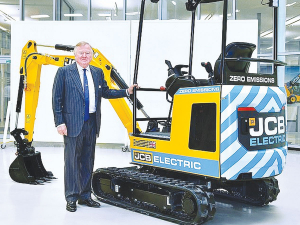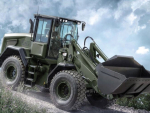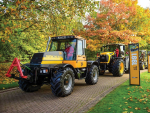Signalling changing times, the construction and agricultural machinery maker JCB has begun producing the world’s first fully electric mini excavator.
Dubbed the 19C-1E, the excavator is made at JCB’s Cheadle, UK factory. Sixty machines have now been sold, the company says.
The excavator uses the latest automotive battery technology for zero emissions and five times less noise than its diesel counterpart, yet it has the same performance as a fossil fuelled version.
A full battery charge takes no more than two hours then it’s ready for a full shift.
The unit is said to be popular with companies working inside buildings or in tunnels and in urban places with noise restrictions.
Operating costs are low: five years of charging would cost only half that of rebated diesel. And servicing costs are expected to be 70% lower.
All machines are fitted with the JCB LiveLink telematics system as standard.
JCB profit
JCB has posted 2018 turnover of NZ$7.8 billion versus NZ$6.46b in 2017. Profit was NZ$849m (NZ$648m).
Machine production hit 96,246 units vs 75,693 in the previous year.
JCB says the global construction machine market grew 18% to one million machines. JCB had a 22% gain. Its largest market was India, where JCB India celebrated 40 years and commissioned a NZ$123m factory in Gujarat which will open in 2020.
But the company warned that this year many markets are stalled, notably the Middle East, Latin America and India.











